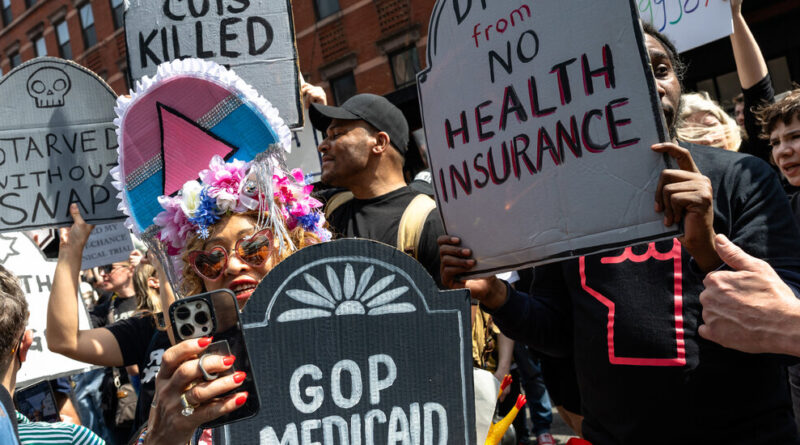More Americans Cannot Afford Medical Care: Gallup Poll
It’s not just the high price of eggs or the rising cost of housing that is contributing to Americans’ unhappiness over the cost of living. Health care remains stubbornly unaffordable for millions of people, according to a new survey released Wednesday that underscores the struggle many people have in paying for a doctor’s visit or a prescription drug — even before any talk of cutting government coverage.
In the survey, 11 percent of people said they could not afford medication and care within the past three months, the highest level in the four years the survey has been conducted. More than a third of those surveyed, representing some 91 million adults, said if they were to need medical care, they would not be able to pay for it.
The survey, conducted from mid-November to late December 2024 by West Health and Gallup, also showed widening disparities for Black and Hispanic adults and for those making the least amount of money. A quarter of those with an annual household income of less than $24,000 said they could not afford or access care within the past three months.
“The extent to which that has broadened and expanded really exposes how vulnerable these classes of individuals are,” Dan Witters, a senior researcher at Gallup, said.
White adults and high earners said they experienced no real change in their ability to pay. Eight percent of white adults reported being unable to afford care, the same share as in 2021, according to the survey.
Higher premiums, the added cost of going to the doctor and the recent rollback in Medicaid coverage have all contributed to making it harder for people to afford care. Health care costs continue to rise, and dramatic cuts to Medicaid and the elimination of tax subsidies that lower the cost of Obamacare plans, as discussed by the Trump administration and Republican lawmakers, will likely exacerbate the problem, according to experts.
“It puts further pressure on a system that already has a financial toxicity that is pervasive, “ said Tim Lash, president of the West Health Policy Center. Many families are already struggling with medical debt, he said. Unlike doing without a new blender, people who forgo care can suffer or die, he said.
While there have been significant improvements in the past 15 years under the Affordable Care Act, which significantly expanded Medicaid, “we’re not a country where health care is affordable,” said Sara R. Collins, a health economist who is vice president for health care coverage and access for the nonprofit Commonwealth Fund. Even when people have insurance, many do not have sufficient coverage to pay their medical bills.
If the hundreds of billions of dollars in cuts go through that Republican lawmakers and the Trump administration are considering, the number of people who will not able to afford care is likely to climb, she said, as millions of people lose their coverage or replace it with less generous plans.
“We’re getting back to levels that existed before the Affordable Care Act,” she said.

